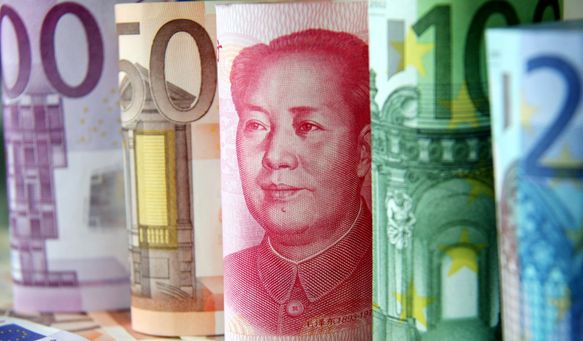How debate on the renminbi devaluation is missing the bigger picture

Clearly China’s slower economic growth is a major reason for the recent devaluation of the renminbi. However, the People’s Bank of China’s action is not simply a panicked reversion to an export driven economy.
One should recall the recent weakness of the euro and its relation to the renminbi. Luxury German automobiles simply have cost fewer yuan as Germany has stirred the pot concerning the Greek debt and the resulting crisis. China had no choice while converting to a consumer economy but to staunch the unfavourable exchange rate of the renminbi to the euro.
And the risk to import prices of commodities? The already low prices are driven even lower due to the perceived instability. And shipping costs for these bulk commodities are very low also. In addition, the Japanese yen has weakened over the last several years.
China’s actions should not simply be evaluated in light of its relation to the United States; they should be viewed with respect to its internal restructuring. A weakened renminbi does not just improve exports; it limits imports. In converting to a consumer driven economy it is not advantages if consumers simply drive up demand for foreign goods.
Germany’s tantrum over the Greek debt has resulted in a devaluation of the euro with respect to the US dollar by over 25% since mid-2014. The Japanese yen has followed a similar path over the last year. While one can understand Japan’s need to improve its economy, which has been in the doldrums for decades, Germany has simply misused its position in the euro for national gain among its elite class to the detriment of the import dominated economies within the Eurozone and to the detriment of the non-Eurozone economies such as China. China would be wise to revalue its currency and then peg the renminbi to a basket of currencies weighted heavily with the euro and the yen.
As an example, the prices of BMW and Mercedes-Benz cars in Beijing showrooms directly affects the sale of corresponding Chinese automobiles. The cachet of European luxury must be countered by a significant price differential.
But we move on to another reason for the devaluation. China’s pivot is not just from an export economy to a consumer one. China also is switching its export economy from being the world’s low cost assembler to a source of heavy machinery and state-of-the-art industrial products, goods that Germany and Japan have excelled in developing and exporting for decades. Decades ago Japan switched from cheap low technology products to state-of-the-art electronics and cameras. China’s high-speed rail systems will compete with those designed and built by Japan. Doesn’t the devaluation help the competition against Japan for the Indonesian high-speed rail project? Or more correctly, hasn’t the Chinese devaluation helped in a small way to offset the huge devaluation of the Japanese yen which has occurred over the last year?
Interestingly, China’s devaluation of a few percentage points rattled securities worldwide while the greater ones by Japan and Germany have not. Japan has been excused for the fall of the yen, but why has Germany for its actions during the Greek crisis? Most observers have noted that Germany’s economic hegemony was maintained during the Eurozone crisis but it should also be noted that by creating the turmoil, Germany has boosted the economies of the export dominated countries, such as itself. Unfortunately austerity policies are held up as the reason for the relative success of Germany and Ireland, not the exchange rates favourable for Eurozone exports.
Back to the future for China, what should be expected and what should be monitored? First, China will continue to shift the quality and sophistication of its exports: high-speed trains, electronics of Chinese design, high-tech machinery, et cetera. Second, it will continue the development of the Silk Road transportation projects, which will open new markets in addition to establishing new trade routes. And the relevant indicators of success will be the housing prices in China, electricity consumption, exports of high-value items, and consumption of larger domestic products, such as automobiles. Stock market behaviour is not that important at this time.
China’s economy must not be evaluated as one would view a western non-authoritarian economy. Such analyses will only lead one astray.
